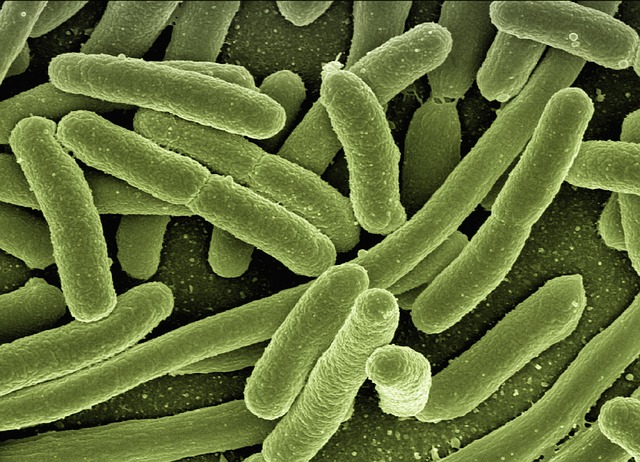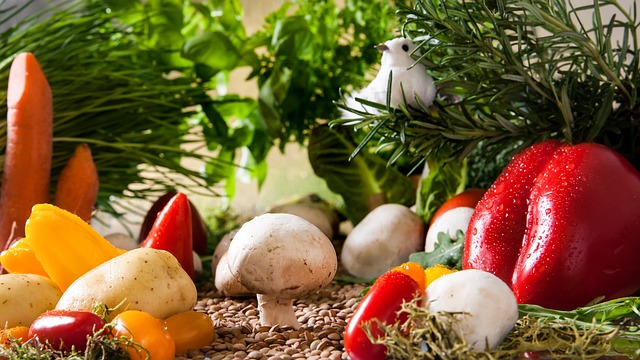When you stop to think about all the little tiny organisms you can’t see, and how many millions…billions…of them there are, it’s pretty mind-blowing.
While many are floating around in the air, there are also hundreds of them inside your body.
No, this isn’t a new version of the movie Alien – none of them are going to try to take over your body – but in a sense, this really is a symbiotic relationship.

You thought your unique fingerprint is pretty cool, right? What about your unique microbiome?

You have bacteria living throughout your body, but there are 300 to 500 different kinds of bacteria in your gut: especially in your intestines and colon. When paired with other tiny organisms like viruses and fungi, you get the microbiome.
And your mix of microorganisms is different from everyone else’s. It’s partly due to your mother’s microbiome that you were exposed to at birth, and partly due to your personal diet and lifestyle.
These bacteria affect everything from your metabolism to your mood to your immune system.
In fact, scientists now know that the bacteria in healthy people are different from the bacteria in people with illness and disease.
Bacteria affect your metabolism by determining how many calories you get from food, and the nutrients you can extract from it. If you have too many gut bacteria, they may turn fiber into fatty acids, leaving fat deposits in your liver. This can cause obesity, type 2 diabetes, and heart disease.

Too-low levels of anti-inflammatory gut bacteria can cause bowel diseases like Crohn’s and ulcerative colitis, as the bacteria get off track and attack your intestines.
People with colon cancer usually have higher levels of disease-causing bacteria, and people with arthritis may have greater numbers of bacteria associated with inflammation.
And don’t forget the connection between your gut and your brain. When certain gut bacteria are off track, it can lead to anxiety or depression.

OK, what do you look for to see if you should check your gut health? These are some of the symptoms of an unhealthy gut:
- Your stomach never really feels “right”. Diarrhea, constipation, bloating, reflux, irritable bowel disease, colitis, nausea, and heartburn are telltale signs of gut issues.
- You crave sweets and sugars. This happens when there is too much yeast in your system. Be aware that good bacteria can sometimes be wiped out by a course of antibiotics, leaving you craving sweets due to too much yeast.
- Sudden weight changes. Some bacteria are related to weight loss, and others to weight gain.
- Anxiety or depression. The neurotransmitter serotonin – which affects mood, social behavior, sleep, appetite, memory, and libido – is produced primarily in the gut. If there is an imbalance, you may feel depressed.
- Skin rashes and/or eczema. Inflamed, red, itchy skin may indicate an imbalance in gut bacteria.
- Autoimmune diseases. Rheumatoid arthritis, multiple sclerosis, and other forms of autoimmune diseases are affected by an imbalance in gut bacteria.
As you may imagine, to affect your gut bacteria, you should change the way you are eating!
Start by eating prebiotics – plant fibers that act as a kind of fertilizer for the good bacteria in your gut. These include pistachios, bananas, garlic, onion, wheat, oats, and ancient grains like quinoa, millet, or chia.

Also add fermented foods such as yogurt, kombucha, kimchi, and kefir, which naturally contain probiotics (the good bacteria).
Eat a lot less (or even eliminate) processed foods, breads, and pastas, as well as foods that are high in fat and sugar, and low in fiber.
I’m sure you can guess what you should eat, right? 🙂 Of course: plants, fruits, seeds, and nuts.
Exercise may encourage the growth of a variety of gut bacteria, which will reduce your risk of disease.
Finally, if you need to take antibiotics to fight illness, consider taking a probiotic supplement so you don’t kill off all the good bacteria, and cause more problems than you solve.
I suspect you’re noticing a pattern whenever I write to you about foods that promote health, aren’t you?
If you would like some support figuring out how to implement this type of nutrition into your daily diet, so you feel stronger, more alert, and just generally healthier, please click here to sign up for a time to speak with me.
Looking forward to helping you feel great all over!
About the Author:
Lynn Coffey is the health & wellness writer for Studioz Personal Training. You can learn more about us and what we do by calling 0421 287 107 or alternatively visit our Boot Camp website here.
